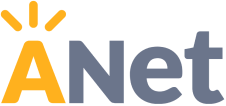by Chrissy Allison

Reading TNTP’s recent study, “The Mirage: Confronting the Hard Truth About Our Quest for Teacher Development,” left me with more questions than answers. After several discussions with colleagues, I’ve come to think that we might be having the wrong conversation—that instead of talking about teacher development, we should talk about teaching development. We can’t develop teachers any more than we can force students to learn. Instead, we need to provide opportunities for teachers to deepen their knowledge and hone their craft.
Not teacher development—teaching development
We can learn a lot about professional development that “works” by going straight to the source, teachers themselves. The Bill and Melinda Gates foundation report, “Teachers Know Best: Teacher’s Views on Professional Development” offers this compelling headline: “Teachers want well-structured collaboration and are most satisfied when benefits to day-to-day work are clear.” (page 8). This makes sense to me and doesn’t seem to be asking too much!
Unfortunately, we know that, despite considerable effort, we’ve failed to shift our instructional practices, to the detriment of our students. The New York Times drove home this point in their piece, “Why Do Americans Stink at Math?”
Luckily, we now have the Common Core State Standards in forty-two states. With its push towards rigorous instruction, many educators are exploring what it’s going to take to reach those standards. We have many pockets of great instruction—and great results—here in the U.S. I’d like to suggest “lesson study,” a PD protocol widely used in Japan, as a means to spreading these practices.
The “lesson study” protocol: a PD approach with potential
After working with dozens of teachers as an instructional coach, I have firsthand knowledge about what it takes to shift instructional practices in classrooms—time and opportunity to collaborate with others, a willingness to share openly during collaboration, and access to a “more knowledgeable other” (MKO) who can offer support and feedback.

All of these practices are built into the structure of lesson study, which, as the Times article documents, was critical to shifting the instructional approach of Japanese teachers. (You can read more about lesson study in the article, “A different approach to teacher learning: Lesson study.”)
In lesson study teachers collaboratively plan, observe, and discuss a “public lesson.” During planning, they study the standards, research various instructional methods for the topic, and debate which problem to pose to students. They anticipate student responses, both correct and incorrect, and brainstorm how they might respond to each of the answers. When observing the lesson, they take copious notes about what students say and do, looking for evidence of student understanding or confusion.

Diagram by Teaching Through Problem-Solving
The follow-up discussion is grounded in student work and focused on student learning. Absent from the discussion are critiques of the teacher and what he/she did “right” or “wrong.” After the discussion, a knowledgeable expert provides commentary on both the lesson itself and the discussion.
All of this work is in service of improving teaching, not of improving the teacher. Every participant walks away with reflections from the lesson and what it could mean for their instruction. I’ve observed five public lessons myself, and each time I learned something different. One time I developed a stronger opinion about how to sequence student solutions in order to build understanding. After another I had a clearer understanding of the varied uses of mathematical models.
Whether or not all schools decide to implement lesson study, there is much we can learn from its structure: (1) Focus on improving teaching, not teachers, (2) Provide opportunities for teachers to work collaboratively to plan, observe, and discuss lessons, (3) Give teachers access to a knowledgeable expert who can support them on their journey.
Chrissy is ANet’s director of math expertise and strategy.

